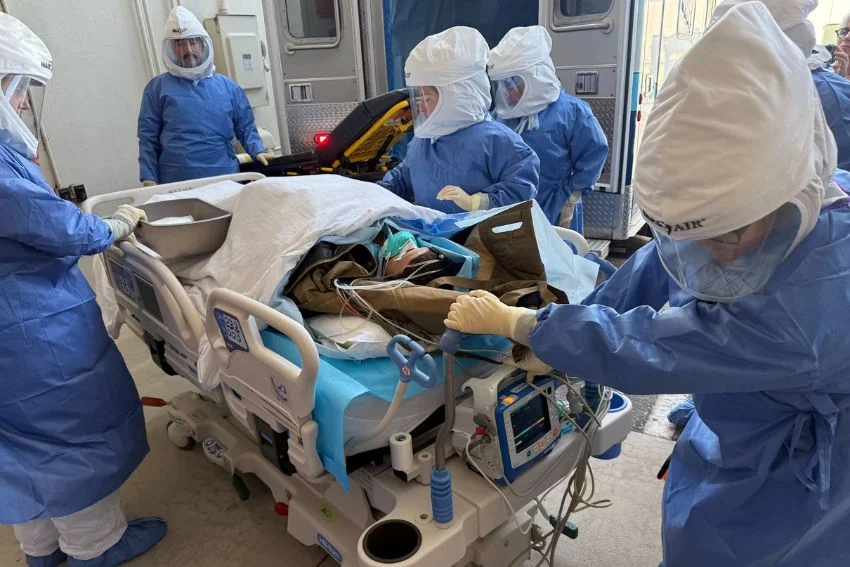A patient’s routine visit to Concord Hospital’s emergency department quickly escalated into a full-scale emergency response scenario. The intense, large-scale drill tested staff preparedness for a potentially serious infectious disease.
The sequence began when the mock patient reported concerning symptoms. “I’ve got a fever, my gums are bleeding a bit,” she told the nurse. Her next answer triggered an immediate high-level alert. When asked about recent travel, the patient replied, “I was over in Sierra Leone.”
“That’s a bit of a trigger. It’s enough to trigger a response for a high-consequence infectious disease,” explained Caren Friend, Sydney Local Health District Disaster Manager. With an ongoing Ebola outbreak reported in parts of Africa, the destination instantly raised alarm bells.
From Quarantine to Bio-Containment Transport
The woman was swiftly moved into quarantine for immediate testing. Across the hospital, staff quickly activated strict infectious disease protocols. This was, thankfully, a training exercise designed to test emergency plans.
Inside the incident control room, key personnel coordinated the next phase. Dr. Timothy Gray, Concord Hospital Infectious Diseases Specialist, noted during a mock crisis meeting that the patient was “not fit for discharge from an isolation point of view but also from a medical point of view.”
The critical decision was made to transfer the patient to the advanced biocontainment unit at Westmead Hospital. For transport, a vital piece of specialized equipment was required: a bio-containment bubble.
Dr. Rob Scott of NSW Ambulance explained the technology: “It’s a contained negative pressure unit which allows the patient to be transported in a contained manner.” The patient was secured inside the capsule, monitored by oxygen and heart rate equipment, and sealed for transport.
The Goal: Preparedness for the Unprecedented
Several similar drills were conducted across Sydney hospitals last month. The goal is clear: to ensure full preparedness for a worst-case scenario, even though the bio-containment capsule itself has never been required for a real emergency.
Dr. Gray emphasized the global context. “Australia has not yet had any Ebola or Ebola-like illnesses imported to Australia,” he confirmed. Nonetheless, cases have been recorded in both Europe and America. Therefore, “we must be prepared for the event that it occurs here,” he concluded.
NAPE Warns of Oil Decline, Urges Urgent Exploration Investment




















